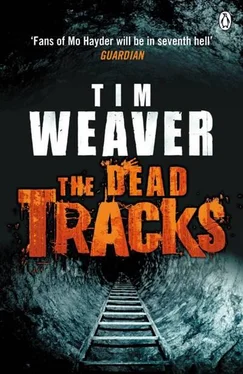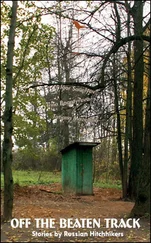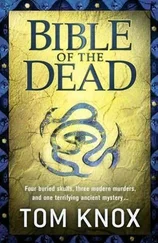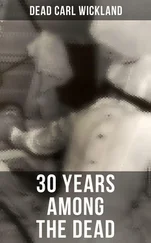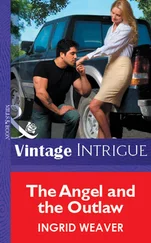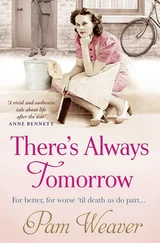But said nothing.
I got to my feet. His eyes followed me but his body was completely motionless. I walked across the room and buzzed the intercom. The door opened inwards. In the corridor, a uniformed officer was waiting to escort me to the viewing room next door. When I looked back, Crane was staring up at me from under the ridge of his brow, a hint of a smile back on his face. A real one this time. Lips turning up. Eyes widening, like they were trying to suck in all the light in the room.
'We're done,' I said to him.
A sliver of tongue passed along his lips.
'Are we?' he said quietly.
Legal Right
The holding cell was small and cold. The white walls looked like they'd been painted recently, but the ceiling — a creamy-beige colour — was peeling all along the middle and in the corners of the room. There was one bunk screwed to the wall and one metal toilet screwed to the floor.
Aron Crane was sitting on the edge of the bed. His clothes had been bagged and taken off somewhere. Now he sat in a dark blue sweater, a pair of black trousers and a pair of black rubber-soled slip-ons. At the door to the cell, a uniformed officer was standing guard. Crane saw part of his head and the white cotton of his shirt when the porthole slid across. Occasionally, other policemen would look in, some in uniform, some in plain clothes.
Everyone wanted to see Dr Glass.
He'd been sitting there for an hour when the door clunked and opened. Two officers were standing in the doorway. One of them was holding a set of handcuffs. They entered and told him to stand, then the one with the handcuffs placed them around his wrists, clicked them into place and led him out. They were taking him back to the room he'd faced Raker in earlier that day.
Raker.
Crane had underestimated him. He thought he could use him, the fact he had sore points. Weaknesses. But Raker was perceptive and clever. He'd used Crane's wife as bait and tried to get inside his head, tried to force Crane to react. But that was okay. Raker might have messed with the project before it was finished, but Crane had plans for him.
Revenge would come.
They turned a corner and moved into the interview room, sitting him down at the table. They chained him to the metal ring, welded to the surface, and then left.
Silence.
They would find out about Phedra eventually. He knew that. If they looked hard enough, they would find what was left of her body. And they would find the body next to it as well. They would realize that the inscription on his chain - PC — were her initials, and that the chain had been hers.
But they would never find out what happened.
Because even he wasn't sure now. He'd moved it around in his head so much, some days he remembered it being an accident and some days he didn't. Some days she was carrying a tray across the decking on the top of their house and stumbled. And some days she was screaming at him, telling him she was two months away from giving birth and she needed him to care, and he pushed her. The one thing that was clear was looking over the edge of the roof and seeing her on the grass below him, flat on her back.
Looking up at him as her life ebbed away.
Two plain-clothes policemen entered. One was Hart, the other was Phillips. Hart asked Crane if he was all right. Crane gave no reply. He'd spoken little to them since they'd brought him in; only to tell them he wanted Raker to ask the questions. Now they were going to try again.
'Mr Crane,' Hart said, 'we need to know where Jill White is.'
He studied Hart. You look like a skeleton.
'Mr Crane?'
You look like you should be buried in the ground .
'Mr Crane, we really need you to -'
'I want to make a phone call.'
They looked at him. Inside he felt himself smiling. He'd stunned them into silence. Hart glanced at Phillips and back to Crane. 'You want a solicitor now?'
Crane nodded.
'We can appoint you one.'
'I have my own.'
'Okay, we can call him for -'
'No,' Crane said. 'I'll call him.'
They looked at him. Hart leaned forward. Phillips started turning his wedding band, eyes fixed on Crane. Why now?' Phillips asked.
'Because it's my legal right.'
'Yeah, but why now?'
'Because it's my legal right.'
More silence. Hart glanced at Phillips, but Phillips was looking at Crane, his head tilted as if trying to work out what made him tick. Crane stared back, the two of them holding each other's gaze. He could tell Phillips had something about him. In many ways he wasn't dissimilar to Raker: they both observed, and watched for the rhythms of conversations - and the things that were out of place. Finally, Phillips stopped turning his wedding band and slowly started to nod.
'Then it looks like you get to call your solicitor,' he said.
Chapter Seventy-three
It was almost 9 p.m. by the time I got to Derry Road. Police cars were lined up at the entrance to the alley that led through to the Dead Tracks, the entire street cordoned off. The taxi dropped me off at the southern end. I waited while a uniformed officer radioed through to Phillips to tell him I'd arrived. A minute later, he lifted the tape and I ducked under and moved along the pavement, towards the eye of the storm. Windows were open. People were looking down. Sirens were painting the concrete blue. There was the smell of food in the air, drifting out from the houses, and the coolness of imminent rain.
In the middle of the street were two specialist firearms officers. One of them was at the rear of their vehicle, checking a Heckler & Koch MP 5 submachine gun, a Glock 17 holstered at his hip. The other was inside the front of the car, on a phone, writing something on a piece of paper he had pressed to the dashboard. Beyond was a Mercedes Sprinter police van. Two officers were stationed outside. Spread around them in a vague semicircle were a series of marked cars. Next to one of them, I could see Phillips and Hart talking to one another, Hart pointing towards the closed rear doors of the police van.
Inside was Aron Crane.
Hart looked up as I approached; Phillips too. Both of them nodded. They didn't want me here, and I didn't want to be here. But when they'd tried to question Crane about where Jill really was, he said he'd show them — as long as I was there. They had a look on their faces I could read as clearly as if it was printed on a billboard: I was tied up in this somehow. But the only thing I knew for sure was that there was something ominous about this whole thing. Something dangerous and sinister.
He'd tracked Jill for months himself, while he forced Markham to lure in Megan and Sona. I imagined he liked the idea of pursuing the wife of the man he'd killed. It massaged his ego. His sense of power. His control. And now, for all the men and the cars and the show of force, there was only one person directing everything: Aron Crane.
Phillips told me he'd be with me shortly, and then both he and Hart turned their backs on me, shielding their conversation. I didn't care. I didn't need to know their strategy to know that everything about this felt wrong.
Around them police officers gathered. Some with dogs. Some with flashlights. The two SFOs fell in next to the rear of the van, eyes taking in the scene. One of them fiddled with the slide on his Glock. He removed it from its holster, checked it, then returned it. Any moment, the doors were going to be flung open and Crane would be sitting there, looking out. He'd love the chaos he'd created.
Finally, Phillips and Hart finished talking, and Hart wandered off. Phillips had the air of the man in charge. Hart was a career cop. Solid, dependable, bright but not a natural. He'd progressed through the ranks based on decent results and saying the right things. Phillips was different. He could play the game, but he was good at his job too. People would wait for Phillips to give the command.
Читать дальше
